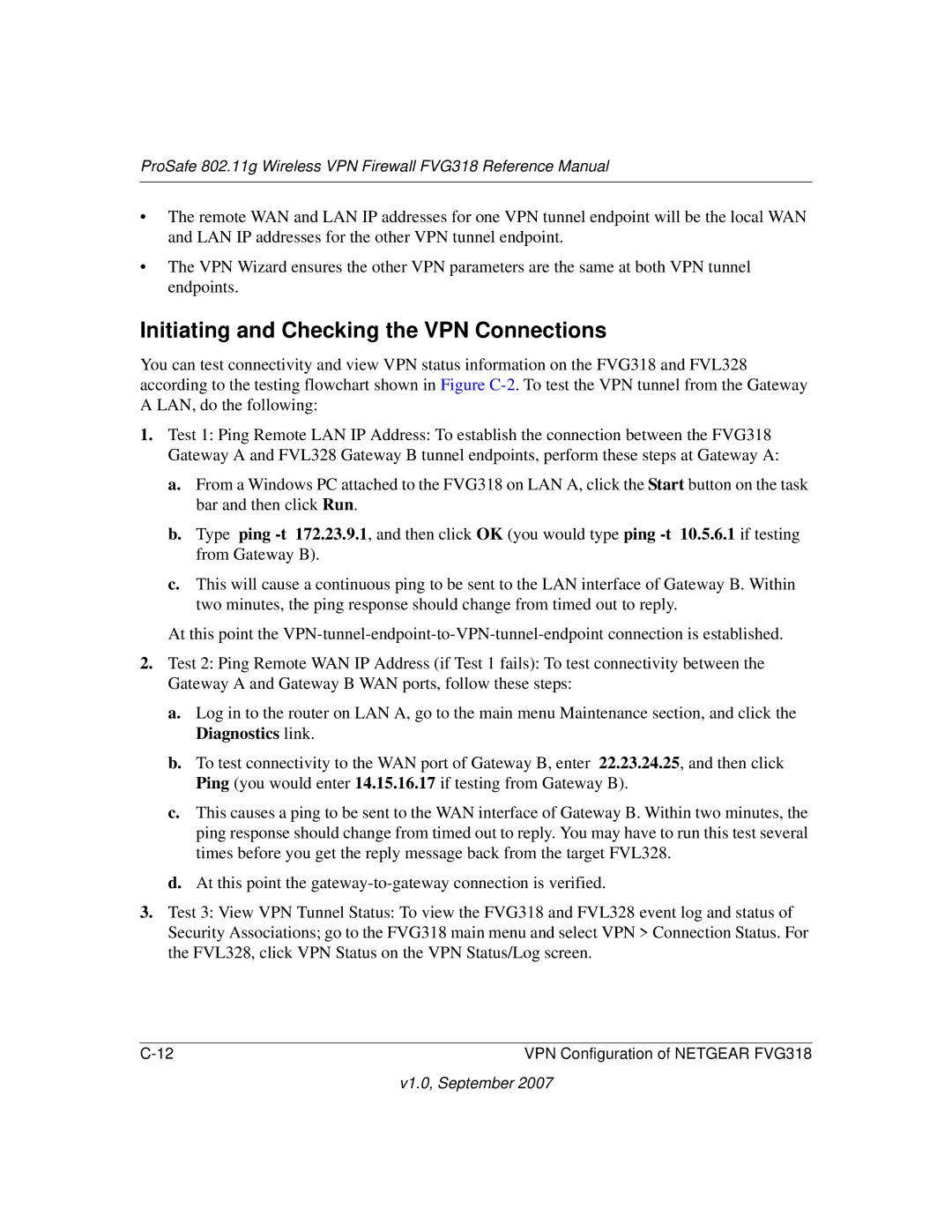ProSafe 802.11g Wireless VPN Firewall FVG318 Reference Manual
•The remote WAN and LAN IP addresses for one VPN tunnel endpoint will be the local WAN and LAN IP addresses for the other VPN tunnel endpoint.
•The VPN Wizard ensures the other VPN parameters are the same at both VPN tunnel endpoints.
Initiating and Checking the VPN Connections
You can test connectivity and view VPN status information on the FVG318 and FVL328 according to the testing flowchart shown in Figure
1.Test 1: Ping Remote LAN IP Address: To establish the connection between the FVG318 Gateway A and FVL328 Gateway B tunnel endpoints, perform these steps at Gateway A:
a.From a Windows PC attached to the FVG318 on LAN A, click the Start button on the task bar and then click Run.
b.Type ping
c.This will cause a continuous ping to be sent to the LAN interface of Gateway B. Within two minutes, the ping response should change from timed out to reply.
At this point the
2.Test 2: Ping Remote WAN IP Address (if Test 1 fails): To test connectivity between the Gateway A and Gateway B WAN ports, follow these steps:
a.Log in to the router on LAN A, go to the main menu Maintenance section, and click the Diagnostics link.
b.To test connectivity to the WAN port of Gateway B, enter 22.23.24.25, and then click Ping (you would enter 14.15.16.17 if testing from Gateway B).
c.This causes a ping to be sent to the WAN interface of Gateway B. Within two minutes, the ping response should change from timed out to reply. You may have to run this test several times before you get the reply message back from the target FVL328.
d.At this point the
3.Test 3: View VPN Tunnel Status: To view the FVG318 and FVL328 event log and status of Security Associations; go to the FVG318 main menu and select VPN > Connection Status. For the FVL328, click VPN Status on the VPN Status/Log screen.
VPN Configuration of NETGEAR FVG318 |
